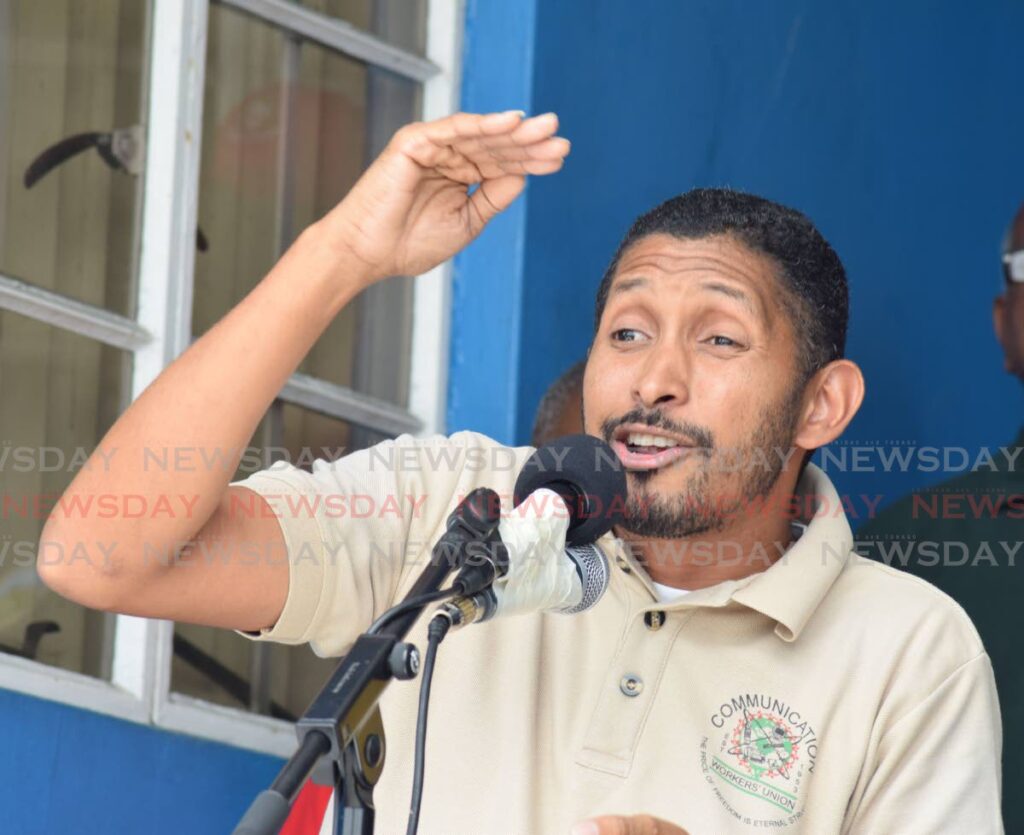Restructuring talks continue between TSTT, CWU

TALKS on proposed restructuring are still ongoing between TSTT and the Communication Workers Union (CWU), union leader Clyde Elder has confirmed.
TSTT has been in the public spotlight recently after a recent spate of thefts of copper cables but had previously garnered attention over a statement that the company needed to be restructured, raising union fears of accompanying mass retrenchment.
In January, TSTT said that it revenues last year fell by $453 million, from $2.49 billion to $2.04 billion, equating to its after-tax loss improving from $277 million to $94 million. TSTT blamed the drop in revenue on the pandemic and competition from newer platforms like WhatsApp and Zoom, and predicted those factors would continue into the future.
TSTT CEO Lisa Agard said then that the company must urgently restructure to remain competitive, evoking a response by Elder that TSTT was implicitly intending to cut its workforce drastically as a means of cutting costs.
Newsday sent a query to TSTT on Wednesday, but the reply only dealt with recent cable thefts and not the company's restructuring.
Elder, when contacted, told Newsday his union and TSTT had met twice, on February 1 and April 22. He said since then, the parties have been exchanging correspondence, adding, "We are still in discussions."
After the January meeting, Elder told Newsday the union had to pry out of a TSTT manager the fact that up to 600 workers could face retrenchment, comprising about 425-455 unionised staff, plus some contract staff and executives.
Estate Police Association president Deryck Richardson had told Newsday he feared for the security of tenure of 36 unionised security officers.
On Wednesday, Elder recalled these projected numbers to Newsday but said during the company/union dialogue since then, TSTT had given no notices of retrenchment to any worker.
On the issue of copper cable theft, Elder said since last November, the union had written to the company to discuss its copper stocks, but received no reply.
"We are concerned about the theft of cable. TSTT has some culpability," Elder said.
He added that TSTT should have had a plan in place to better protect its assets, including its miles of copper cables hanging from utility poles across the country.
Elder has not warmed to proposals by the Scrap Iron Dealers Association to be contracted by TSTT to recover the company's unused cable. He said TSTT has the staff to do this.
He also slammed rogue scrap metal merchants who buy what they know to be stolen copper.
The association has repeatedly and strenuously dissociated itself from such offences, reminiscent of its pledge to work with the police when metal manhole covers went missing in downtown Port of Spain last June, but were recovered by the police within hours of the loss being publicised.
Elder said it was ironic that cable thieves saw the value of TSTT's copper assets, even as TSTT is not seeing this same value.
He also said that when all of Trinidad was in the grip of a 12-hour blackout in February after a tree fell on T&TEC installations, tripping the island's electricity grid, it was house phones using traditional copper cables that worked, and not the newer fibre-optic phones, all of which failed.

Comments
"Restructuring talks continue between TSTT, CWU"